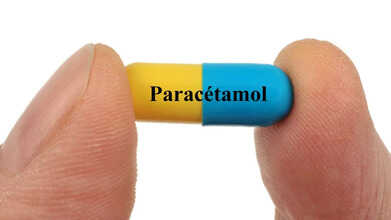- Health Conditions A-Z
- Health & Wellness
- Nutrition
- Fitness
- Health News
- Ayurveda
- Videos
- Medicine A-Z
- Parenting
- Web Stories
Why You Love Your Partner's Scent: The Science Behind Attraction, Explains Expert

Credits: Canva
Do you ever find yourself catching a whiff of your partner's smell? Are you also someone who keeps their partner's hoodie or shirt with them so they can feel their presence through their scent? If yes, then you would be interested to know that there is actually science behind it.
Karishma Khanna (name changed), 23, a researcher, who has been with her partner for over a year, says that her partner's scent makes her happy and feel calm. "When I catch her scent I not only feel happy, but there is this warm fuzzy at home sort of feeling. I am not very sure of the reason but I think it is simply the way she smells makes feel like I am in a safe space."
Ishmeet, 26, a research intern, who has been with her partner for almost a year says, "Smelling her calms me down. It is almost a regulatory practice. If I am stressed, I go sniff her. If I feel overwhelmed, I sniff her. If I can smell her, my brain will think I am safe."
"I am not a smell person, so I did not notice it before. But over time, when feelings developed, attraction became much stronger, their scent makes me immensely happy," says Bhoomi (name changed), 24, service designer, who has been with her partner for seven months. While Nitisha, a 25-year-old Accounts Manager, says that she noticed her partner's smell in the beginning, but when became familiar with it after she started dating.
The common among all of them, whether or not they noticed any scent in the beginning, is that they all love their partners' scents. Is there any science behind it? Clinical Psychologist at LISSUN, a mental health platform, Pratishtha Rajan says that this can be explained psychologically and biologically. "Chemosensory signaling, which is how humans and other species communicate through scent, plays a significant role in attraction and bonding," she says.
The Science Behind Scents
A study by Wedekind in 1995 suggests that men find the scent of women more pleasant when they are close to ovulation, potentially because our sense of smell detects fertility cues. Similarly, women tend to prefer the scent of men with different Major Histocompatibility Complex (MHC) genes, which may be an evolved mechanism to promote healthier offspring.
Smelling a partner's scent can also provide comfort during times of separation. A 2006 study by McBurney, Shoup and Streeter revealed that 87% of women and 56% of men reported intentionally smelling their partner’s clothing to feel closer to them, with more women (72%) than men (27%) also sleeping with their partner’s clothing.
"This "olfactory comfort" helps people feel emotionally connected, similar to how physical touch provides a sense of safety," notes Rajan.
Rightly so, Ishmeet also expresses that she feels both, comfort and a sense of security when she smells her partner's scent. Similarly, Khanna too accepts that security and safety are two senses that she feels when she catches her partner's whiff.
For Nitisha, the first thoughts that come to her mind are calmness, happiness, and sorrow, as sniffing her partner's clothes makes her miss him even more. She also feels "seductive" at times. For Bhoomi, it is lust. When asked what emotion she feels, Bhoomi says, "Always a smile accompanied by a sudden calmness and that quickly turns me into a puddle of mush."
Rajan suggests that it could be due to the scents like androstanol, a male hormone-related compound, which have been found to increase women's perception of male and heighten arousal.
Emotional Bonding Through Odor
"Partner's scent helps reduce anxiety and negative emotions, thereby strengthening the emotional bond between partners. The comforting effect of a partner's scent highlights the deep psychological and emotional connections that can be formed through smell, reinforcing the importance of scent in maintaining close relationships," suggests Rajan.
Bhoomi follows a special ritual when she is having a bad day. They cuddle and she would nuzzle on her partner, smelling them and "it is not a bad day anymore."
Ishmeet says that her partner's scent influences her mood and also if they are ever in an argument, sniffing her would make Ishmeet resolve it quickly, does strengthening their bond too.
How Does It Influence Your Mood?
Research has shown that odor-evoked memories can significantly impact emotional and physiological responses. These memories are often associated with positive emotions, which are known to improve physical health and longevity.
"Therefore, when a partner’s scent triggers positive emotional states, it can lead to favourable health outcomes for both partners," suggest Rajan.
Your partner's scent can also reduce stress and anxiety, creating a sense of security and comfort. This emotional connection through scent underscores its importance in maintaining close relationships and promoting overall well-being. "The ability of scent to evoke positive emotions and memories highlights its profound impact on both mental and physical health in intimate relationships," says Rajan.
So next time when you catch yourself getting a whiff of your partner's smell or stealing their hoodies. Know that there is science behind it!
Paracetamol Should Not Be Mixed With These Medications, Doctors Advise

Credits: Canva
The NHS has issued a warning for anyone using a common painkiller, highlighting possible harmful interactions with other medications. Across the UK, many people turn to over-the-counter medicines for daily aches, colds, and minor illnesses. Among these, paracetamol is one of the most widely used, often taken for headaches, back pain, and cold symptoms. But, like any medication, it carries certain risks.
Who Should Be Careful?
The NHS has provided guidance on using paracetamol safely, including which drug combinations should be avoided. “Paracetamol is not suitable for some people,” the health body explains. This includes individuals who take warfarin, a drug that prevents blood clots. If you are on warfarin, you should check with your GP before taking paracetamol, the NHS advises. “Paracetamol can raise the risk of bleeding in those who regularly take warfarin.”
Safe Dosing Guidelines
Small doses of paracetamol alongside warfarin are generally considered safe. The NHS adds: “It’s safe to take paracetamol if you’re on warfarin. Stick to the lowest dose that relieves your pain. Exceeding four 500mg tablets in 24 hours for more than a few days can slow your blood clotting, putting you at risk of bleeding.”
Avoid Double Dosing
Combining paracetamol with other medicines containing the same ingredient—like co-codamol or some cold and flu remedies—can be risky due to the danger of overdose. Other common painkillers, such as ibuprofen, aspirin, or codeine, do not contain paracetamol and can safely be taken at the same time.
Check with Your Doctor
The NHS advises consulting a doctor before taking paracetamol if you’re on medications for epilepsy or tuberculosis (TB), as these combinations can also pose risks.
Herbal Remedies and Supplements
Generally, paracetamol is not affected by herbal supplements, though the NHS notes: “There isn’t enough information to say whether herbal remedies, complementary medicines, or supplements are safe with paracetamol. They are not tested the same way as prescription or pharmacy medications and may interact differently.” Patients should inform their doctor or pharmacist about any other medicines or supplements they are taking.
Side Effects of Paracetamol
When taken at the recommended dose, paracetamol “very rarely” causes side effects. For a full list, refer to the information leaflet inside the packaging.
Serious Allergic Reactions
In rare cases, a serious allergic reaction (anaphylaxis) can occur. The NHS advises calling 999 immediately if you notice:
- Swelling of lips, mouth, throat, or tongue
- Rapid or labored breathing, wheezing, or a choking sensation
- A tight throat or difficulty swallowing
- Skin, lips, or tongue turning blue, grey, or pale (on darker skin, check palms or soles)
- Sudden confusion, extreme drowsiness, or dizziness
- Fainting and unresponsiveness
- A child appearing limp, floppy, or unresponsive, with difficulty lifting or focusing their head
Do You Zone Out Often? Study Finds This May Be A Way For Your Brain Do 'Maintenance'

(Credit-Canva)
That sudden, foggy feeling where you can't focus, especially when you're super tired? New research suggests that these moments of zoning out are actually your brain's last-ditch effort to do the important cleaning it normally saves for when you're fast asleep. Your brain is trying to take a quick, emergency break.
We have all had days when focusing seems too difficult and you keep ‘spacing out’. When this happens, you take a moment to regain your composure and get back to what you were doing. While you may think that it is a simple lapse in attention, there is a lot that happens in your brain during this time.
The research, published in the Nature Neuroscience, shows this is the time your brain does its ‘maintenance work’ to ensure maximum functionality.
Why Do We Zone Out?
Scientists at MIT used special scanners to look deep inside the brain while people were trying to concentrate. They discovered that the exact moment someone zoned out, a wave of cerebrospinal fluid (CSF), a clear fluid that surrounds the brain, whooshed out, and then flowed right back in. This movement of fluid looks exactly like the process that happens during deep sleep, when the fluid washes away built-up waste and toxins from the day. When you're awake and tired, your brain is trying to force this cleaning process to happen.
How Does Our Brain Keep Functioning Fluidly?
A leading neuroscientist from the study explained that if you skip sleep, these cleaning waves start happening while you're awake, even though they shouldn't. The problem is that while the fluid is flowing and cleaning, you lose your ability to pay attention. It's a trade-off: your brain tries to clean up, but the price is that you can't focus on what you're doing. It’s almost like your brain is desperately trying to squeeze in a tiny bit of "microsleep" maintenance, which steals your focus.
The researchers had people do tests in the lab twice: once after they were well-rested, and once after they stayed up all night. Unsurprisingly, people performed much worse when they hadn't slept. Critically, the zoning out happened far more often after the all-nighter. When they looked at the brain data, they saw a clear pattern: when people's reaction times slowed down (meaning they were zoning out), the big fluid cleaning waves were always present. This strongly suggests your tired brain is trying to use these quick cycles to restore function, even if it makes you temporarily lose focus.
How Do We Know When We Zone Out?
The research revealed that when people zoned out, not only did the brain fluid move, but other things changed, too. Their breathing and heart rate slowed down, and their pupils got smaller. This makes the scientists suspect that a single, powerful "master switch" in the body controls both your high-level functions (like attention and perception) and these automatic, basic physical processes (like fluid movement and heart rate). The finding suggests that a lack of sleep affects your whole body through one central system.
Your Daily Work 'Grind' Is Ruining Your Heart Health, Cardiologist Explains How These Daily Habits Affect Your Heart

(Credit-Canva)
Recently, we are seeing a rise in ‘grind culture’. People are encouraged to pack their days with work and be as productive as possible to secure future success. However, did you know that chasing this success could come at the cost of your heart's health? Dr. Dmitry Yaranov, MD, a cardiologist, who often shared important health advice and knowledge on Instagram videos, explained posted about how as a practicing healthcare professional, there are many heart facts that he wished his patients knew about.
Things we often perceive as important for our careers can come at the cost of our mental and physical health. By not realizing the value of their health and ignoring their limits, people often stretch themselves too far, which can result in reaching a breaking point.
In a recent video posted with the text, “After treating thousands of patients with heart failure this are the things I wish more people knew before it was too late” in the caption he listed 6 hard facts that most people ignore.
6 Habits That Are Leading You To Heart Failure
In the caption Dr. Yaranov explained that cardiovascular health involves much more than just hitting the gym and eating salads. Your heart health is fundamentally tied to sleep, stress management, environmental factors, access to resources, and even the state of your gut. Fix the foundation, not just the numbers.
Sleep Deprivation is Dangerous
Sleeping only six hours nightly and pushing yourself is a serious threat, not a badge of honor. This chronic sleep loss significantly raises your long-term risk of developing severe conditions like heart failure, having a stroke, or experiencing sudden cardiac death. Your body needs rest to recover.
Air Quality Hardens Arteries
Commuting daily in heavy traffic means breathing exhaust and particulate matter. This consistent exposure to air pollution does more than irritate your lungs; scientific studies confirm it literally hardens your arteries, increasing your risk for major cardiac events over time.
Stress Causes Overload
If you are always stressed and simply "pushing through" without managing the pressure, your body is producing too much cortisol. This hormonal overload leads to persistent high blood pressure and widespread inflammation, key factors that severely damage the cardiovascular system.
Gum Health Impacts Heart Health
Ignoring routine dental care and having gum disease creates chronic infection in your mouth. This persistent gum disease results in more body-wide inflammation, which is directly linked to a significantly higher risk of heart attack and other cardiovascular problems.
Food Access Matters
Even if you have the best intentions to eat well, living where healthy food is hard to find (a food desert) makes it difficult. This lack of access to nutritious options leads to worse cardiac outcomes, proving that environment, not just personal willpower, shapes your health.
Gut Health Affects Vital Signs
The state of your digestive system should not be ignored. The millions of bacteria in your gut microbiome play a critical, unrecognized role in helping your body regulate blood pressure and cholesterol levels. You must consciously feed your gut bacteria the right way.
© 2024 Bennett, Coleman & Company Limited

